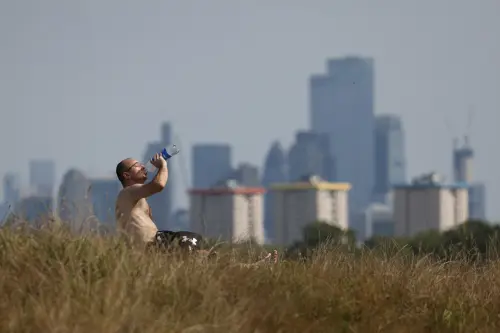In the recently published seventh carbon budget for 2038-2042, the Climate Change Committee advised that Britain needs to urgently reduce its reliance on fossil fuels, transition to electric vehicles and heat pumps, and decrease meat consumption to achieve its 2050 net zero target. This advice underscores the significant challenge ahead and coincides with mounting pressure on the government to address rising energy costs following a recent announcement of price hikes by the energy regulator.
To reach net zero emissions and meet Paris Climate Agreement targets, the report suggests an 87% reduction in emissions compared to 1990 levels by 2040. While the UK has already achieved a nearly 53% reduction in greenhouse gas emissions by the end of 2023, primarily driven by advancements in renewable energy and closure of coal plants, further efforts are required across sectors like transportation, buildings, industry, and agriculture.
Interim CCC Chair, Piers Forster, emphasized the need for swift action in these areas, stating that such measures not only combat climate change but also present economic opportunities while lowering household bills. The report proposes ambitious targets, including the adoption of 80% fully electric cars on the roads by 2040 and a significant increase in heat pump usage for home heating. These changes would necessitate a substantial rise in renewable energy production, with a remarkable increase in electricity demand.
The government's commitment to decarbonize the electricity sector aims to promote sustainability, reduce energy costs, and enhance energy independence. The transition is projected to result in household savings by 2040 and could slash energy bills by approximately £700 ($883.82) by 2050 compared to current levels. Recommendations in the report include streamlining electricity costs, facilitating installations such as charging points, and supporting the uptake of heat pump technology.
Additionally, the budget outlines a decline in meat consumption by 25% by 2040 and 35% by 2050 compared to 2019 levels, reflecting an ongoing trend towards alternative, affordable, and tastier meat substitutes. Not addressed in the report are the impacts of aviation expansion, with a projected 17% reduction in aviation emissions by 2040 based on the industry's adoption of sustainable practices and investments in carbon offsetting.
As part of the Climate Change Act, the UK government must outline plans to achieve legally binding climate targets and establish carbon budgets well in advance. Notably, the government has endorsed the CCC's previous six carbon budgets, underscoring its commitment to combatting climate change and advancing towards a sustainable future.
